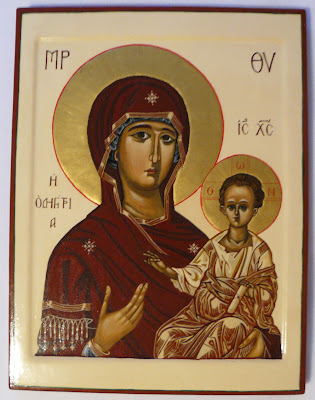>[Scroll down 
to read about
the letters A-R
as “A Sinner’s
Lenten Alphabet”
continues.]
Years ago I had a friend who began all his correspondence this way: “Greetings and Salutations!” It always sounded kind of British to me. He was a bit formal. I’m sure you’re wondering by now why I chose “salutations” as part of my Lenten alphabet. Well, here we go:
S is for Salutations
The dictionary definition is simply: “an expression of greeting, goodwill, or courtesy by word, gesture, or ceremony.” Lets break it down.
What it is—expression of greeting, goodwill, or courtesy.
How it’s given—by word, gesture, or ceremony.
 In today’s urban American youth culture, salutations by word and gesture are usually casual, even “slang-ish,” like “whatup?” and “sup Dog?” (like Randy always says on Idol) and are often accompanied by a certain kind of hand movement. In the business world, the salutation is usually a little more formal, and includes a less creative handshake.
In today’s urban American youth culture, salutations by word and gesture are usually casual, even “slang-ish,” like “whatup?” and “sup Dog?” (like Randy always says on Idol) and are often accompanied by a certain kind of hand movement. In the business world, the salutation is usually a little more formal, and includes a less creative handshake.
But in other countries—especially in Korea, Japan and China—there are actually ceremonies for greeting one another. When our son, Jason, returned from a visit to his homeland, South Korea, about ten years ago, he went to his room and changed into a hanbok—a ceremonial robe—and greeted us with a bow of respect that is given to one’s parents. (I can’t find a picture of Jason in the hanbok, but I framed it later, so here’s a picture of it in its frame. The sleeves are folded under, so you can’t really see the shape, but you get the general idea.)
 All that to say that a salutation can be ceremonial. And that’s what we do on Friday nights at St. John Orthodox Church here in Memphis during Great Lent—Salutations to the Mother of God. These services are done on the four Friday nights of Great Lent. It’s actually a Compline service, with an Akathist Hymn to the Mother of God inserted. A portion of the Salutations is done each week, following the themes of Annunciation, Nativity, Christ and the Theotokos (Mother of God) herself. The entire Akathist is sung on the fifth Friday evening of Great Lent.
All that to say that a salutation can be ceremonial. And that’s what we do on Friday nights at St. John Orthodox Church here in Memphis during Great Lent—Salutations to the Mother of God. These services are done on the four Friday nights of Great Lent. It’s actually a Compline service, with an Akathist Hymn to the Mother of God inserted. A portion of the Salutations is done each week, following the themes of Annunciation, Nativity, Christ and the Theotokos (Mother of God) herself. The entire Akathist is sung on the fifth Friday evening of Great Lent.
So, this coming Friday night, we’ll sing the “Fourth Stasis,” the portion of the Akathist about the Mother of God. It’s very humbling to me that the icon of the Mother of God, Directress, which Kerry Sneed and I wrote, is placed in the center of the solea for parishioners to venerate at this service. I feel like I should have a special hanbok to wear as I greet the Mother of my Lord in this way, making a prostration and then kissing her hand, and the hand of Jesus, on the icon.
I remember the awe I felt in October of 2007, when I venerated an icon attributed to the hand of Saint Luke on the island of Leros, in Greece.
It’s hard to hold onto that sense of awe, but these Friday nights at Saint John really help.
Here’s a little taste of what we’ll be singing:
Ikos 12
While singing to Thine Offspring, we all praise Thee as a living temple, O Theotokos; for the Lord Who holdeth all things in His hand dwelt in Thy womb, and He sanctified and glorified Thee, and taught all to cry to Thee:
Rejoice, tabernacle of God the Word:
Rejoice, greater holy of holies!
Rejoice, ark gilded by the Spirit:
Rejoice, inexhaustible treasury of life!
Rejoice, precious diadem of pious kings:
Rejoice, venerable boast of reverent priests!
Rejoice, unshakable fortress of the Church:
Rejoice, inviolable wall of the kingdom!
Rejoice, Thou through whom victories are obtained:
Rejoice, Thou through whom foes fall prostrate!
Rejoice, healing of my flesh:
Rejoice, salvation of my soul!
Rejoice, Thou Bride Unwedded!
And then we end with one of my favorite hymns, “To Thee the Champion Leader.”
Greetings and Salutations, most precious Mother of my Lord.

